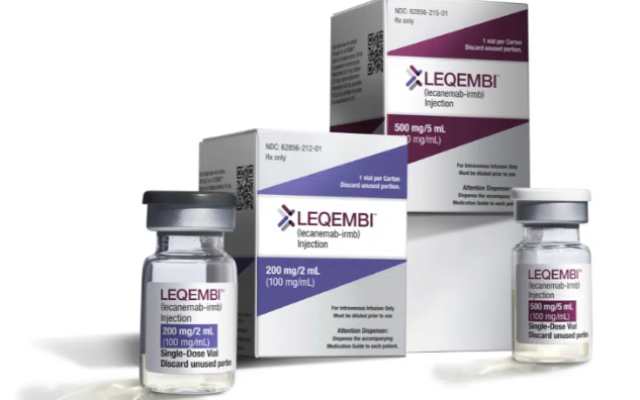New Alzheimer’s Drug Gets FDA Approval
The drug, Leqembi, has shown some success in treating those who are in the early development stage of the disease.

For the second time in the past two years, the Food and Drug Administration has granted accelerated approval for a new drug that has some limited benefit to patients suffering from Alzheimer’s disease.
The new drug, Leqembi, which was approved on Jan. 6, is said to slow somewhat the cognitive decline in those who are in the early stages of the memory robbing ailment. The drug has been developed by the Japanese pharmaceutical manufacturer, Eisai, and its American partner, Biogen. In a study published in the New England Journal of Medicine last November, the drug, which was tested under its medical name, lecanemab, had a modest effect on slowing the progression of Alzheimer’s in about 1,800 patients over an 18-month period.
The research was warmly welcomed by advocates for Alzheimer patients who have long despaired over any encouraging news about a treatment for the devastating disease that afflicts more than 6 million Americans.
For members of the Alzheimer’s medical treatment community, like Dr. Howard Ellit, who is the chief science officer of the Alzheimer’s Drug Discovery Foundation, it was an important move.

“This is encouraging news, but the approval of lecanemab is just the first step. Alzheimer’s therapies will only be beneficial to patients if the right drug is given to the right patient at the right time based on their unique disease pathology, and for that we need new and novel diagnostic biomarkers.”
Dr. Allan Levey, who heads up the Alzheimer’s Disease Research Center at Emory University, points out that drug research in the field lags behind other serious conditions.
“This is a disease which still receives far less funding than, for example, cancer and heart disease. And despite it being as common, you know, and so there’s a lot of catch up because it’s only recently that research has been supported at the level that is now…getting to actually make progress.”
Prescribing the drug won’t be easy. Neurologists will need to go through a full assessment of a patient’s cognitive ability, followed by expensive diagnostic brain scans and spinal taps to determine the progression of the disease. Only those patients who are in the early stages of the disease, where there is only mild dementia or mild cognitive impairment, are good candidates for the medication.
Continued brain scans are required for patients receiving the drug, to guard against bleeding and swelling in the brain. Three patients were reported to have died from brain injuries while receiving the experimental drug. Then, there is the cost of the medication itself.

Although the precise yearly cost of the drug has not been set, Eisai, the Japanese drug maker that is taking the lead in marketing the new medication, says the drug could be priced as high as $35,600 a year.
For Eisai and Biogen, this is the second attempt to bring an Alzheimer’s drug to market. In 2021, the two companies received approval for Aduhelm, which carried an initial yearly price tag of $56,000 plus the cost of administering the drug. It was approved over the objections of the FDA’s own advisory panel and there were a number of experts like Dr. Levey at Emory who felt the drug should not have gotten the agency’s nod.
Several hospitals around the country refused to prescribe it and the drug was never approved by Medicare. It only brought in revenues of about $5 million in 2022 and the head of Biogen, which managed the company’s introduction of the drug, lost his job over its failure in the marketplace.
A congressional report, which was released last month, was critical of the way Aduhelm was approved by the FDA. It said that the federal agency and Biogen worked together in an “inappropriate” and “atypical” way on documentation that led to the approval of the treatment.
There was also criticism by lawmakers on the high price of the drug, which was intended by Biogen to “make history” financially for the pharmaceutical manufacturer.
Despite the questions around the regulatory process, Dr. Levey at Emory remains optimistic about the future of research that will help slow or even head off the progression of the disease in many patients.
“While we’re in a really dire situation because we don’t have effective medications, the truth is we’re very, very hopeful that research is going to soon bring more effective medicines for those who are symptomatic,” Dr. Levey said. “And I’m even more hopeful because of the advances in our understanding of the disease.”



comments